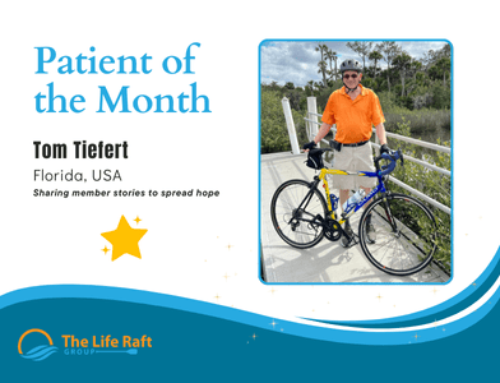Here is the member story for Chandell Fuqua.
This article was originally printed in March 2008 edition of Lawrence Gazette. It is reprinted here with permission.
By Rob Anthes
Lawrence Gazette Staff Writer

Chandell Fuqua
February 29, 2008, Lawrence NJ — Lawrence High School senior Chandell Fuqua widened his brown eyes and inhaled a deep, calming breath.
Propped against a locker while resting after drills with the Cardinal track team, Fuqua stopped to think about what he’s accomplished this winter. He took his forearm to wipe the sweat rolling down his brow and shrugged.
He offered a demure explanation of how he wasn’t surprised he set a Lawrence High record in the 55-meter hurdles and qualified for three events in the 2008 New Jersey state indoor track championships this February, but he appreciated the accomplishments just the same.
Forgive Fuqua when he downplays himself. It’s a defense mechanism.
Fuqua’s record-setting performance came just nine weeks after undergoing surgery to remove cancerous tumors from his abdomen. The procedure kept him in a hospital for five days and out of school for three weeks. It rendered him unable to participate in any physical activity for six weeks.
It was the third time in the 18-year-old’s life he needed this kind of surgery.
Fuqua doesn’t talk about it often. He doesn’t bring it up unless asked, and even then he offers only a brief explanation. He fears he’ll be known more for his illness than his accomplishments, even when his achievements place him among the top track athletes in the state and in the Lawrence High record book.
After just 10 days of training, Fuqua ran the 55-meter hurdles in a school record 8.1 seconds and placed fourth at the Mercer County Winter Track Championship on Feb. 3. He finished fourth in the 55-meter hurdles and sixth in the 400-meter dash the next week at the Central New Jersey Group III Sectional Championships. The 400-meter relay team he belongs to ran the second fastest time in school history and finished fourth at the Feb. 17 Group III State Championships.
“If you didn’t see the medical report, you would never know,” Lawrence High track coach Dave O’Neal said. “He would never let on or indicate or make mention of it. He doesn’t want that to identify him. He doesn’t want to be the great athlete who has cancer. He just wants to be a great athlete.”
O’Neal didn’t know Fuqua suffered from a rare cancer called gastrointestinal stromal tumors, or GIST, until he happened to glance at the athlete’s physical form one day in Fuqua’s freshman year.
About 20 percent of GIST occurrences are cancerous, and GIST encompasses less than one percent of all cancer cases, said Dr. David August, director of the Cancer Institute of New Jersey’s gastrointestinal and hepatobiliary oncology program and chief of the institute’s division of surgical oncology.
After suffering from the cancerous form of GIST at ages 12 and 14, Fuqua went through his first three years of high school healthy.
A team of doctors based at New Brunswick’s Cancer Institute of New Jersey and New York’s Memorial Sloan-Kettering Cancer Center constantly review his health. Fuqua visits the Cancer Institute of New Jersey every three months, where he gives blood and undergoes PET scans.
The radioactive material doctors administer to Fuqua for the PET scan usually makes him woozy for a day or two, but there aren’t any ill effects beside a limitation on physical activity for a few days, said Kanya Pannell, Fuqua’s mother.
But, in October 2007, the doctors saw something. Cancerous tumors, 23 of them, grew in Fuqua’s stomach. He needed surgery.
Surgery is one of the few options to treat GIST, and it’s the only option Fuqua has taken. The tumors resist chemotherapy.
One month after Fuqua found out he had cancer for a third time, he spent five days in a hospital bed recovering from the late November procedure to remove 23 tumors. His doctors considered the recovery exceptionally quick. Normally, it takes more than a week before patients can be released from the hospital after the surgery.
Fuqua continued fighting through his recovery once he went home, wanting to return to the track team sometime during the winter season.
“His drive is amazing,” Pannell said. “Despite his illness, he doesn’t miss practice. He fights me when I tell him he has to miss an exam or practice. He doesn’t want to let his team down.”
He sat out six weeks before returning to practice. Fuqua didn’t ease in; he went straight for the hurdles despite still feeling sore from the surgery.
He ran the 400-meter dash in 53 seconds in a meet against Hopewell Valley a few days later on Jan. 29. Then on Feb. 3, he set the school record in the 55-meter hurdles at the county championship and won an award for courage.
“You hear about a student that had abdominal surgery to remove 23 tumors, and you can’t imagine that being a simple thing,” O’Neal said. “But I think a lot of that is just his heart, his determination.”
Nothing is really simple in Fuqua’s battle with GIST, especially not the disease itself.
Not much is known about GIST except that it defies a lot of conventional thinking about cancer. Most cancers form in the inner lining of organs, called the epithelia. Gastrointestinal stromal tumors, meanwhile, occur in the muscle layer of organs and even appear to be a normal part of the muscle. It’s difficult to detect GIST, and it’s almost impossible to do so in children, said August, who also is a professor of surgery at Robert Wood Johnson Medical School.
So it’s easy to understand Pannell’s confusion in 2002 when she noticed the stomach of her 12-year-old son beginning to swell. At first, she passed it off as bloating from indigestion. But when Fuqua’s stomach continued to swell gradually during the course of a month, she knew something was not right.
Doctors at the emergency room in Princeton’s University Medical Center discovered the swelling was not due to indigestion; there were two tumors on the sixth grader’s stomach.
He underwent emergency surgery at Bristol-Myers Squibb Children’s Hospital in New Brunswick. There, doctors revealed the tumors were cancerous.
Fuqua still does not know why he developed the tumors initially. The reoccurrences in 2004 and 2007 are most likely because microscopic tumors went undiagnosed and weren’t removed during surgery. Microscopic tumors are so minute they are impossible to find, August said.
“There’s no known cause of these, and we have no known risk factors,” August said. “The way I look at it is, unfortunately, it’s bad luck. Some people say you’re challenged in this life up to your ability to handle it. From what I know about this young man, I can’t express enough my admiration for all the hardship he’s gone through and what he’s achieved.”
Fuqua said he doesn’t believe in bad luck, and he certainly won’t quit because things haven’t always gone his way.
While he’s not sure if he’ll ever be completely cancer-free, he continues to work toward his goals. He wants the Lawrence High relay team to qualify for June’s national outdoor track championship in Greensboro, N.C. He wants to run in college — he’s been in touch with the coaching staff at Manhattan College — and major in engineering.
And more than anything, if he’s going to be in the public eye, Fuqua wants to be known for his accomplishments. Cancer will not define him.
Maybe that explains his quicker-than-expected release from the hospital in November or his state meet performance in February. Because even if Fuqua won’t acknowledge the trials GIST presented him, a 400-meter race — even with hurdles — doesn’t seem quite as challenging after that.
“I’m just extremely hard-working,” Fuqua said. “I don’t like to give up. I don’t like losing at anything, no matter what it is.”





